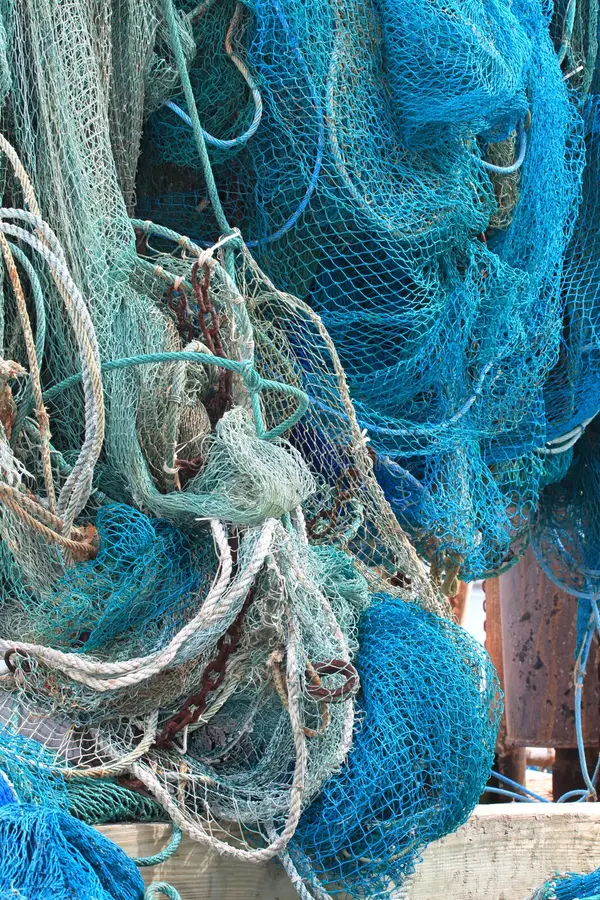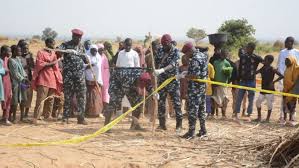
Once used to haul fish from the cold waters off France’s Atlantic coast, discarded fishing nets are now serving a very different purpose — protecting Ukrainian roads, troops, and cities from Russian drone attacks.
At the port of Roscoff, in western Brittany’s Finistère region, 70-year-old Christian Abaziou laughs as he lifts a bundle of weathered green netting.
“It smells like rotten fish,” he jokes — a familiar scent from his decades by the sea.
Abaziou and his longtime friend Gérard Le Duff, 63, are members of the local humanitarian group Kernic Solidarités. On this brisk morning, the two men wait beside a mountain of bundled nets, ready to load another truck bound for war-torn Ukraine.
In early October, their first convoy — 120 kilometres (75 miles) of recycled netting — arrived in Ukraine. A second shipment of 160 kilometres left the small town of Tréflez just weeks later.
“When we began our humanitarian convoys three years ago, drones weren’t even part of the conversation,” says Gérard, the association’s president. “But the war has changed — now it’s a drone war.”
Fishing Nets Turned Anti-Drone Shields
Russia’s drone arsenal includes small, explosive-laden craft — often modified commercial models — capable of striking targets over 25 kilometres away from the front line.
To counter them, Ukrainians have devised a simple but ingenious defence: stretching fishing nets across roads and over key infrastructure, trapping the drones like insects in a web.
When Abaziou heard about the tactic, he immediately reached out to a retired fisherman friend.
“Within 48 hours, I had all the nets I needed,” he recalls proudly.
Former Finistère fisheries chief Jean-Jacques Tanguy, 75, says the local fishing community didn’t hesitate to help.
“It comes from the heart,” he says. “We’re proud to know our old equipment can help save lives.”
Each year, fishermen replace tonnes of worn-out nets that usually pile up along Breton docks. Marc-Olivier Lerrol, deputy director of the Roscoff port, says around 20 to 25 tonnes are collected annually.
“They’re destined for recycling anyway,” he explains. “So why not give them a second life for a good cause?”
As Gérard and Christian’s truck pulls away, Lerrol waves them off with a smile.
“You’re always welcome here — come back anytime!”
From Brittany to the Battlefield
The nets, packed alongside food, infant formula, and medical supplies, make their way to the Polish border, where Ukrainian drivers take over for the long haul east.
The first convoy reached Zaporizhzhia, where the nets were deployed to protect residential districts from incoming drones. The next shipment is headed even farther south, toward Kherson, a city still under constant attack.
A Frenchman based in Ukraine, who helped coordinate the effort, said the gesture has deeply touched Ukrainians.
“There’s a huge need for nets here,” he told AFP. “When people hear that fishermen from Brittany are sending kilometres of their old nets to save lives, many are moved to tears.”
Still, sustaining the effort is a challenge.
“We’ll keep collecting and loading the nets,” says Abaziou, “but we can’t afford to fund the convoys forever. Hopefully, Ukrainians will soon be able to send their own trucks.”
A Tide of Solidarity
The Breton volunteers are not alone. Across France, others have joined the initiative. In Loctudy, trawler owner Stéphane Pochic sent nets in August through another aid group, Arasfec Paca, based in the Hautes-Alpes.
“It’s a symbolic gesture — our way of showing support,” Pochic says.
And the solidarity has spread beyond France: fishermen in Sweden and Denmark have also begun sending their discarded nets to Ukraine’s front lines, transforming once-humble tools of the sea into life-saving shields of war.



